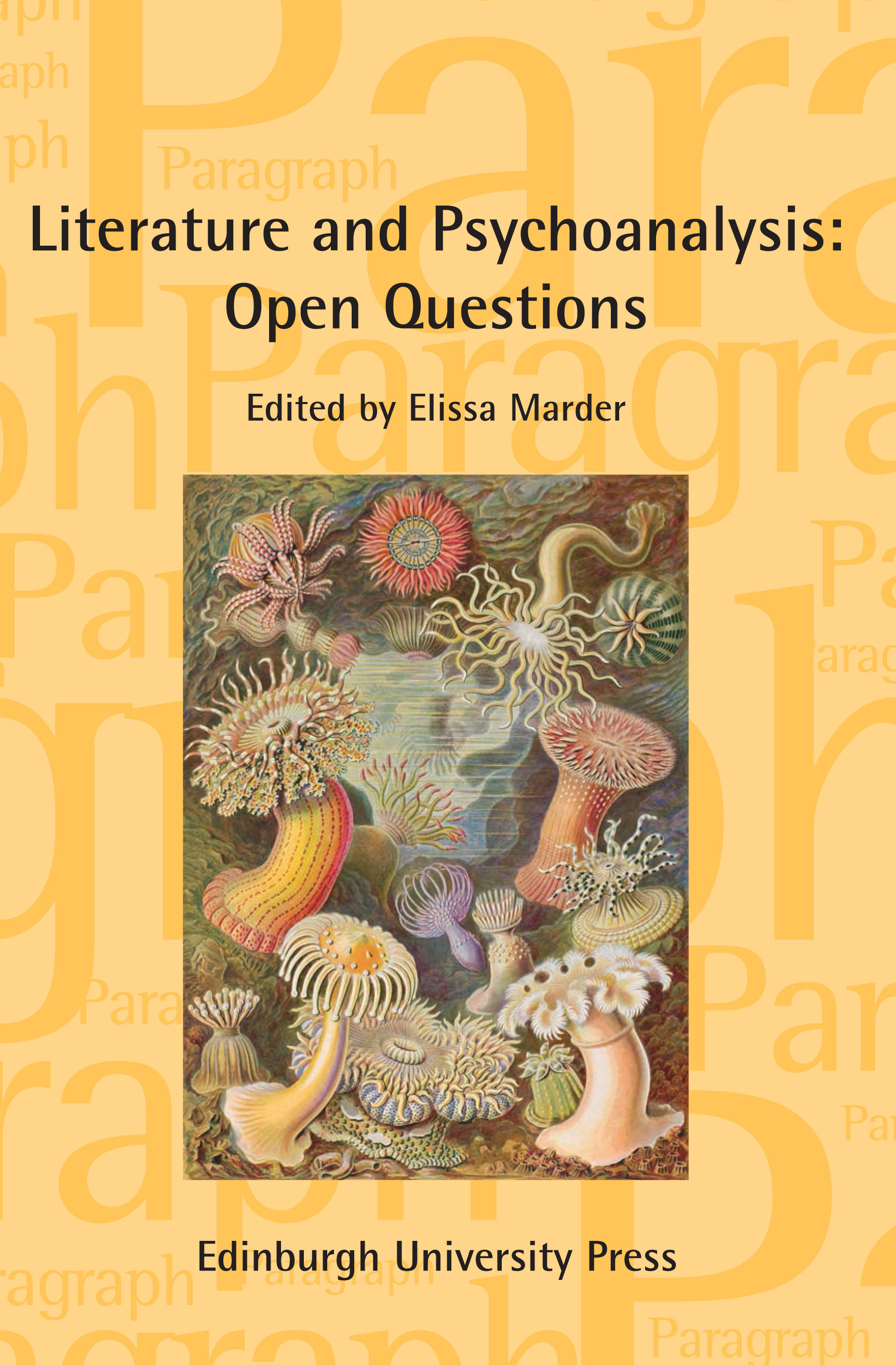
A special issue of journal, Paragraph, guest edited by Elissa Marder, creatively re-imagines Shoshana Felman’s groundbreaking 1977 volume of Yale French Studies (Nos 55/56), Literature and Psychoanalysis: The Question of Reading: Otherwise, in which Felman opened up the question of how literature and psychoanalysis speak to each other’s most intimate concerns. That relationship, Felman proposed, needed to be reinvented, and what was called for was a real dialogue between two different bodies of language and two different modes of knowledge.
In her introduction, Elissa Marder highlights that in the forty years that have elapsed since Felman first reopened the question, the encounter between literature and psychoanalysis has participated in the emergence of several new fields of critical inquiry, such as trauma, testimony, affect theory, neuropsychoanalysis and performance studies, and has been a privileged space for reflections on mourning, singularity, translation and translatability, the death drive, repetition, violence, cruelty, virtual reality, the clinic and sexuality. Marder explains that contributors in her guest edited special issue explore how literature and psychoanalysis share a primary concern with what one can never master or get beyond.
The essays in the issue speak to one another through a distinct set of common themes. Many of them explore texts in which the very possibility of addressing oneself to any other is put into question. Although the authors approach this question from very different angles, in each case the encounter between literature and psychoanalysis bears witness to experiences that cannot be told from within the frame of conventional structures of address.
Today, Shoshana Felman details in her Preface to Literature and Psychoanalysis: Open Questions,
“In 1977 people knew what literature was, but very few had knowledge of French psychoanalysis, and the point of my issue was to teach how the innovations of French psychoanalysis could shed new light on literature. Today the situation is symmetrically reversed. Psychoanalysis — including French psychoanalysis — has become much better known, but we have fundamentally forgotten, and I claim that we no longer know, what literature is, in its distinctive textual specificity. We do teach literary theory in academic literature departments. But very few professors nowadays (in universities across the world) still teach literary texts in their particularity through a focus on close readings, or through detailed analysis of the uniqueness of a text’s style or of its distinctive literary insight.
In 1977 I proposed that we had to learn how to ‘read otherwise’ psychoanalysis, and primarily how to ‘read otherwise’ through psychoanalysis. In 2017 I am suggesting that, in our neoliberal age, what we must ‘read otherwise’ — what I feel today it has become most urgent to read otherwise — is literature.”
Felman asks,
“Can we rekindle the torch of literature and revitalize its dialogue with psychoanalysis, in rejuvenating and renewing both our search for, and our contact with, their common truth, as a perpetual reminder of what can never be forgotten, and simultaneously, as an act that is yet to come?”

Browse the issue contents, including abstracts here, or buy the book.




